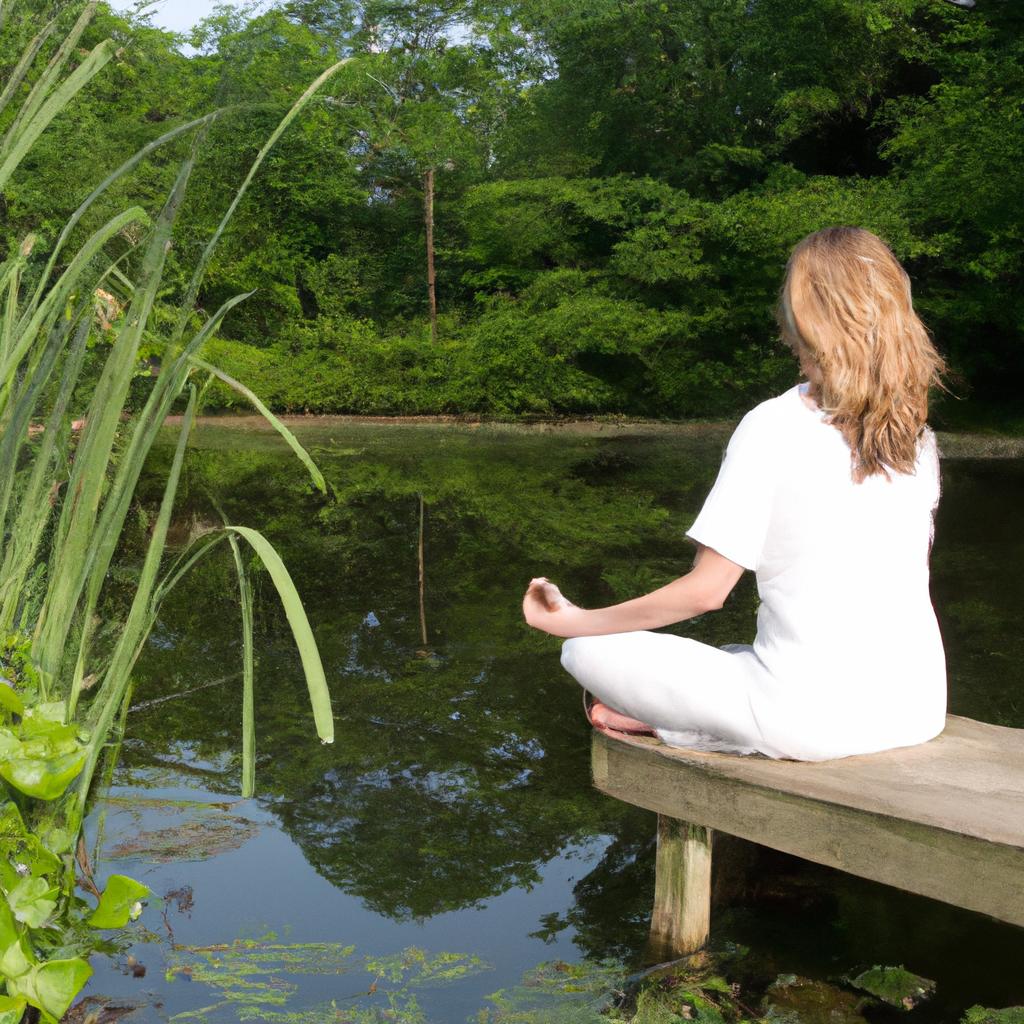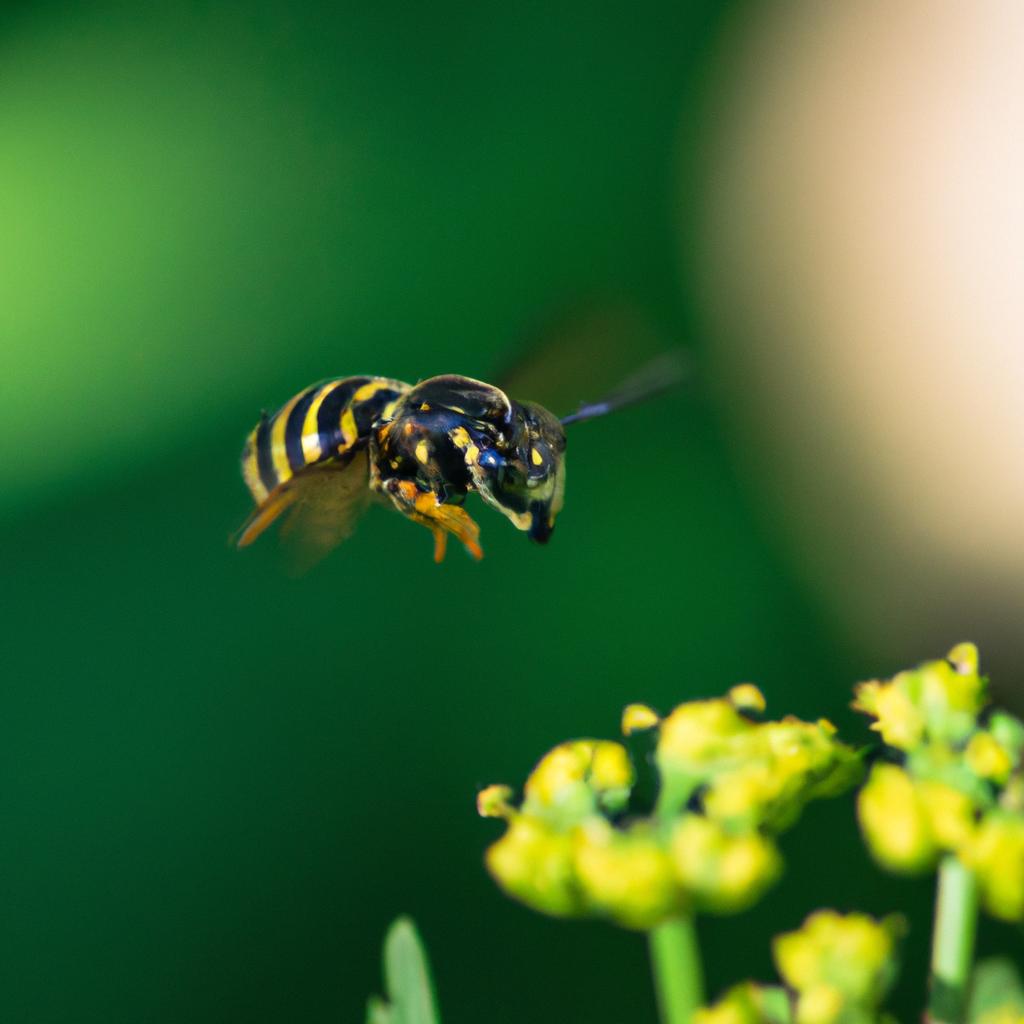If you’re reading this article, you likely have a fear of wasps. You’re not alone; millions of people worldwide have a phobia of these insects. Wasps are often associated with painful stings, aggressive behavior, and swarms. The fear of wasps can be so intense that it can affect your daily life, preventing you from going outside or enjoying outdoor activities. However, there are ways to overcome this fear and live a life free of anxiety.
Understanding Wasps

Before we dive into ways to overcome your fear of wasps, it’s essential to understand the biology and behavior of these insects. Wasps are a type of social insect that belongs to the same order as bees and ants. They play a crucial role in pollination and pest control, making them an essential part of our ecosystem.
There are over 30,000 species of wasps worldwide, and they come in various shapes and sizes. Most wasps have a slender body with a narrow waist, and they’re typically black and yellow or black and red. However, some species have iridescent blues and greens, making them beautiful to look at.
Wasps are often mistaken for bees, but they have several distinct differences. Unlike bees, wasps have smooth and shiny bodies, and they don’t have a hairy appearance. Wasps are also more aggressive than bees, and they can sting multiple times without dying. Finally, wasps are carnivorous, and they feed on other insects, whereas bees feed on nectar and pollen.
By understanding the differences between wasps and bees, you can learn to identify the insects correctly and avoid any unnecessary encounters. In the next section, we’ll explore the root of your fear of wasps.
Identifying the Root of the Fear

To overcome your fear of wasps, you need to identify the root cause of your anxiety. There are several reasons why people develop a fear of wasps.
One of the most common reasons is a traumatic experience with wasps. If you’ve been stung by a wasp in the past, you may have developed a fear of being stung again. The fear can become so intense that you start to avoid any outdoor activity that may involve wasps.
Another reason why people develop a fear of wasps is learned behavior from others. If someone close to you, such as a parent or friend, has a fear of wasps, you may have picked up on their anxiety. This learned behavior can be challenging to overcome, but it’s not impossible.
Finally, it’s essential to understand the physical and emotional symptoms of fear. When you encounter a wasp, you may experience a rapid heartbeat, sweating, and trembling. You may also feel a sense of dread or panic. Understanding these symptoms can help you identify when you’re experiencing fear and take steps to overcome it.
In the next section, we’ll explore ways to overcome your fear of wasps, starting with exposure therapy and desensitization.
Overcoming the Fear
- coming soon
Identifying the Root of the Fear
To overcome your fear of wasps, it’s important to identify the root cause of your anxiety. If you’ve had a traumatic experience with wasps in the past, it’s natural to be fearful when you encounter them again. However, avoiding wasps altogether can make your phobia worse. Instead, try to face your fear gradually by exposing yourself to wasps in a controlled environment.
If your fear of wasps is due to learned behavior from others, it’s important to recognize that your anxiety is not your fault. However, it’s also essential to understand that you have the power to overcome your fear. By seeking professional help, you can learn coping mechanisms to manage your anxiety and live a life free of fear.
Finally, understanding the physical and emotional symptoms of fear is essential in identifying when you’re experiencing anxiety. When you encounter a wasp, you may experience a rapid heartbeat, sweating, and trembling. You may also feel a sense of dread or panic. Recognizing these symptoms can help you take steps to manage your anxiety and prevent it from escalating.
Overcoming the Fear
There are several ways to overcome your fear of wasps, and the approach you choose will depend on the severity of your phobia. Here are some of the most effective ways to combat your fear:
Exposure Therapy and Desensitization
Exposure therapy involves gradually exposing yourself to the object of your fear, in this case, wasps, in a controlled environment. This approach can help you overcome your fear by allowing you to confront it in a safe and controlled setting. Over time, you’ll become desensitized to wasps, and your anxiety will diminish.
Cognitive-Behavioral Therapy
Cognitive-behavioral therapy (CBT) is a type of therapy that focuses on changing negative thought patterns and behaviors. In the case of a fear of wasps, CBT can help you identify and challenge negative thoughts about wasps and replace them with more positive ones. This approach can help you manage your anxiety and prevent it from controlling your life.
Relaxation Techniques
Relaxation techniques, such as deep breathing, meditation, and yoga, can help you manage your anxiety when you encounter a wasp. By practicing these techniques regularly, you can learn to stay calm and relaxed in situations that would normally trigger anxiety.
In conclusion, overcoming a fear of wasps is possible, but it takes time and effort. By identifying the root of your fear, seeking professional help, and using effective coping mechanisms, you can learn to manage your anxiety and live a life free of fear. Remember, wasps are an essential part of our ecosystem, and by learning to coexist with them, you can help protect our planet. At BeeKeepinglove.com, we’re committed to promoting a positive mindset towards wasps and all insects by providing educational resources and promoting responsible beekeeping practices.
Preventing Future Fears
Now that you’ve learned how to overcome your fear of wasps, it’s essential to take steps to prevent future fears from developing. Here are some tips to help you handle wasp encounters and avoid getting stung:
Understanding how to handle wasp encounters
When you encounter a wasp, it’s essential to remain calm and avoid making any sudden movements. Wasps are more likely to sting if they feel threatened or provoked. If a wasp lands on you, try to brush it off gently or blow on it to encourage it to fly away.
Tips for avoiding wasp stings
There are several ways to avoid getting stung by a wasp:
- Avoid wearing brightly colored clothing or floral patterns, as these can attract wasps.
- Avoid wearing perfumes or scented lotions, as these can also attract wasps.
- Keep food and drinks covered when eating outdoors.
- Keep garbage cans and compost bins tightly sealed.
Ways to promote a positive mindset towards wasps
One way to prevent future fears from developing is to promote a positive mindset towards wasps. Here are some tips to help you appreciate these insects:
- Learn more about the biology and behavior of wasps.
- Watch videos or documentaries about wasps to learn more about their role in the ecosystem.
- Visit a local beekeeping or insect exhibit to see wasps up close.
Conclusion
In conclusion, a fear of wasps can be a challenging phobia to overcome, but it’s not impossible. By understanding the biology and behavior of wasps, identifying the root cause of your fear, and using exposure therapy and desensitization, you can overcome your fear and live a life free of anxiety. It’s important to take steps to prevent future fears from developing by learning how to handle wasp encounters, avoiding wasp stings, and promoting a positive mindset towards wasps.
If you’re struggling to overcome your fear of wasps, don’t hesitate to seek professional help. A therapist or counselor can work with you to develop a treatment plan that meets your needs. Remember, a fear of wasps doesn’t have to control your life. By taking the steps outlined in this article, you can overcome your fear and enjoy the outdoors once again. BeeKeepinglove.com wishes you the best of luck in your journey to overcome your fear of wasps.
